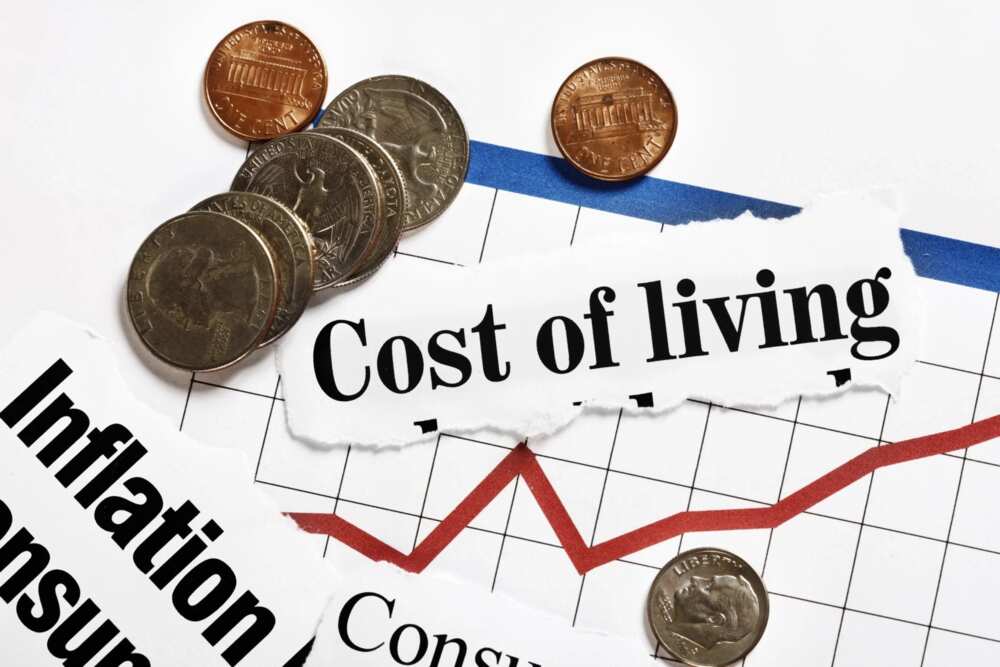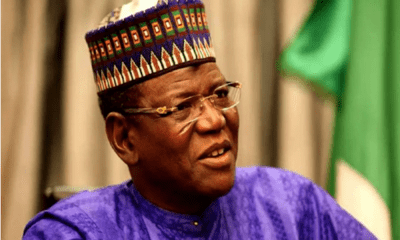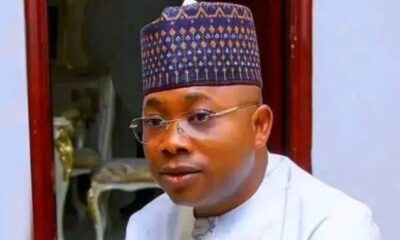Editorial
Insecurity: FG should avoid isolating rising scourge with sectional twists
Insecurity in Nigeria has given to the Country discolored representations. Recently, the myriad dimensions which the wings of insecurity have assumed have set in confusion which largely began to put before citizens questions of whether the government itself understands to categorise threats manifesting in different dimensions from different quarters as they are. The clusters of coordinated attacks, increasingly, have become too expansive in different faces such that linking attacks and threats in proper categories, now pose confusion that would only leave many dismayed.
The most recent killings in Imo, South East, rose issues of arguments, counter arguments, allegations, counter allegations and knocks. Controversies over who or what is responsible for the attack became an issue of contest as what the government ascribed the killings to and who it was attached to, became a reaction that attracted wild contradictions. In his reaction to the killings, President Muhammadu Buhari through his Special Assistant on Media, Mallam Garba Shehu, had on Sunday, August 07, 2022 said, “President Muhammadu Buhari condemned in strong terms the recent attacks against non-indigenes and law enforcement officials by terrorists in the South East,” calling on the “community and religious leaders to speak more forcefully against the killings and to stand up and defend the ethos of the nation’s cultural and religious heritage.”
Counteracting slams, however, trailed the position of the President on the killings. The apex Igbo socio-cultural organisation, Ohanaeze Ndigbo, had on Monday, 08, 2022, slammed the President for the position he took on the killings in the South East, arguing that the utterances of the President as the Commander-in-Chief of the Armed Forces of the Federal Republic of Nigeria were not only very uncharitable but mischievous and undiscerning in Its insinuations.
In a statement titled, ‘Insecurity in the South East: Buhari is blaming the victim,’ the President General of Ohanaeze Ndigbo worldwide, Ambassador Professor George Obiozor, said Ohanaeze Ndigbo condemned the killings and violence, but held that victims cannot be blamed for the insecurity imposed on the South East by President Buhari’s administration.
In the statement issued through Ohanaeze National Publicity Secretary, Dr. Alex Ogbonnia, the group said that to appropriate national problems to the South East of Nigeria was an ethnic prejudice taken too far. The statement had read, “Ohanaeze Ndigbo Worldwide joins the Presidency and indeed the good people of Nigeria in condemning this dastardly act that occurred at Imo State, South East of Nigeria. Ohanaeze has repeatedly explained that amongst the Igbo, human life is very sacred. The sanctity of life is so elevated that killing a human being in whatever circumstance is considered an abomination. In fact, it is not in the character of the Igbo to kill in whatever disguise. These recent developments are indeed very much alien to the reflexes, culture, and norms of the South East. And we have often called on the Nigerian security operatives to ensure that the perpetrators of such acts are brought to book as a deterrent to others.
“The apex Igbo body, however, noted that the failure of the Nigerian security agents to fish out the criminals cannot be blamed on the Igbo. Ohaneaeze Ndigbo, however, frowns at the statement by the Presidency, which is nuanced against the South East as a haven for terrorists that attack non-indigenes and law enforcement officials, implying that the insecurity persists because the leaders have not forcefully spoken. This is very unfair to the Igbo, especially when the presidency knows the root cause and the nature of the insecurity in the South East. It needs to be added that the solution to the insecurity in the South East lies in the enormous powers of the presidency.
“The above remarks by the presidency appear to have ignored the prolonged open war with the Boko Haram in the North East; the Banditry in the North West, especially in Katsina State; the Fulani Herdsmen invasion of several communities in the Middle Belt region; the Church massacre at Owo; the daily kidnappings on our highways; the Kaduna-Abuja train abduction, etc,.Paradoxically, when the district head of Daura, the hometown of Mr President, was kidnapped and was freed after two months, Mallam Garba Shehu was quoted as saying that the “Incident was evidence that Duara was not receiving preferential treatment and that insecurity was a national problem. In other words, when insecurity manifests in the North West, it is a national problem; but when, on the other hand, it occurs in the South East, it is blamed on the inability of the ‘community and religious leaders to speak more forcefully against the killings and to stand up and defend the ethos of the nation’s cultural and religious heritage’.
“The Igbo possess the greatest wanderlust as well as the most hospitable dispositions amongst the various ethnicities in the world. The non-indigenes in the South East enjoy untrammeled friendliness, inter-ethnic assimilation and a conducive business environment; what happened to the non-indigenes in the South East is most regrettable as part of the current national calamity. One would think that the inevitable consequences of the orchestrated mendacious propaganda, dubiety, subterfuge, sabotage, and serial alienation against the South East of Nigeria are already staring us in the face. How do we fight insecurity by appointment of service chiefs based on ethnocentric and religious considerations as against the best global practices of military competence?
“Put differently, how can the South East be excluded among the over 16 service chiefs in the Nigerian armed and paramilitary forces and expect insecurity not to fester? And how; and how; and how…..? And when the chickens have come home to roost, we resort to blaming the victim. The famous psychologist, William Ryan, espoused that blaming the victim is an atrocious ideology that tries to justify social injustice against a group. The oppressor deliberately creates an unjust chaotic environment for the oppressed; and blames the victims for the inevitable crises that flow therefrom.
“In conclusion, it is very uncharitable, if not mischievous, to poison undiscerning minds by insinuating that non-indigenes and security officials are killed by the terrorists in the South East. On the other hand, to appropriate national problem to the South East of Nigeria is an ethnic prejudice taken too far. Invariably, banditry in the North Central persists because their leaders have not forcefully spoken. Rather, they are publicly celebrated and turbaned or still offered the Sheik Gumi option. Both history and current events in the country must have shown that unjust policy against the just shall ultimately vindicate the just.”
It is noteworthy that insecurity situations in the Country have gone beyond isolating or reducing same to ethnic or regional expression. It is indisputable that terror and insecurity challenges have grown beyond bound across the entire Federation. Although the intensity might be by degree across parts of the Country, yet no part of the Federation can be isolated from the scourge. Hence, giving ethic coloration to the subject is in no wise a thoughtful, nor a rational resort as response to the worsening scourge of insecurity in the Country, and may be perceived inconsistent for reaction to any particular case. Rather, the posture to insecurity in the Country should be such demanding nothing but an inclusive and far reaching concerted efforts, with firm measures to develop an overarching coordination of systemic formations to address the scourge of insecurity, demystifying its various forms of networks and clusters.
The profile of insecurity in the Country has assumed a height where only concerted efforts with inclusive approaches, demanding mutual efforts from all stakeholders is pertinent to tackle the scourge. Any posture capable of rousing ethnic coloration or brewing divisive stance is by all means counterproductive to the kind of harmony of efforts required to address the deepening scourge of insecurity in the Country.
While the fight demands concerted efforts from all sides, the role of the government remains pertinent. The Federal Government on whose shoulders lie the preserve of security responsibility in the federation is central to the duty call. Since it has maintained and hold-on to the preserve of the control over security forces in the Federation, it is pertinent for the Federal Government to rise to the responsibility it has held grip to, and steer clear from resorting to apportioning blames or giving sectional coloration to insecurity threats in any part of the Country. The entire Federation has every zone ridden with insecurity challenges of various forms; the Federal Government must rise to its duties and avoid been tempted to resort to sectional coloration or blame trade. Such would bear no positive significance to the fight against insecurity, but would rather generate controversies without headway.
Editorial
Nigerians groan under high cost of living


Barely fourteen days to the first year anniversary of this federal government, Nigerians have continued to groan under high cost of living, amidst a catalogue of failed promises. Despite its chants of ‘Renewed Hope Agenda,’ a cup of garri/rice has since gone out of the reach of an average Nigerian. There is a continuous hike in fuel and other petroleum products. Transportation fares, local, inter-state or international are a no-go area. Nigerians have lost count of pledged dates for the commencement of operations or production of our refineries, especially Port Harcourt Refinery.
Most citizens have lost hope in the current political leadership in the country. Fuel today is being sold at between N800 to N950 per litre and still counting. A bottle of kerosene is about N2,000 and this an essential product being used by almost 90 percent of the population, especially the lower cadre. In the past, the colour of kerosene used to be like spring water from a rock, but today the product is sullied with impurities, its colour of kerosene almost like that of groundnut oil. Yet, it remains scarce and costly. What a country.
Nigeria is possibly the only country with abundant crude oil deposits that prefers to throw away the crude at giveaway price to other countries in the name of exportation, only to buy the refined products from the crude at exorbitant prices, in the name of importation. The first refinery in Port Harcourt was built about nine years after oil was discovered in commercial quantity in Oloibiri in 1956 in the present day Bayelsa State. And up till today there is no intentional attempt to rebuild it, or be religious in maintaining it.
The Naira debuted as the national currency of Nigeria, at 75K to $1, but today N1,500 is exchanging $1. Yet, we are ranked among the highest producers of oil and gas in the comity of nations. The unadulterated truth is this: Nigerians are suffering in the midst of plenty which should not be the case.
The poor leadership of the old brigade, who have held sway since independence, should leave the stage for younger generation. The current President of France, Emmanuel Macro is below forty years. The recent election in Senegal produced a 44-year-old man as president. Whether we like it or not, once a person passes retirement age of 60, his mental faculty starts dropping.
Inflation rate is now 33-35% in the country. Unemployment rate is soaring and the Federal Government had the gut to propose N48,000 as minimum wage for Nigerian workers, possibly as part of the ‘renewed hope agenda.’ This is as against N860,000 being proposed by the organised labour, comprising the Nigeria Labour Congress (NLC) and Trade Union Congress(TUC).
We are not surprised therefore when the organised labour walked out of the negotiation table and handed down a 14-day ultimatum to the Federal Government to think right.
We hope the federal government will really do all it needs to do to avoid another showdown with Nigerian workers who are like wounded lions and have been patient enough with the economic torture currently being experienced by workers in the country. We hope and pray that the tail of a sleeping tiger, will not be unnecessarily pulled. It could amount to unpleasant consequences. The government should fulfil its campaign promises and ensure peace and tranquility throughout the nation.
Editorial
Minimum wage Saga: FG, let the people go…


For years, the narrative has been the same — the economy withers and the common man cries out for reprieve, only to be met with an endless array of impediments. When it is time to intercede for the poor, Nigerians are met with pointless bureaucracy and palliatives. Foreign aid is rendered ineffectual thanks to the gauze-hand of leaders, through which it all slips through into an oblivion of their own invention.
In April 2024, the headline inflation rate rose to 33.69 percent, up from 33.20 percent in March 2024, marking an increase of 0.49 percent points according to the Nigeria Bureau of Statistics (NBS). Yet, to raise the minimum wage to a level that will help beat back hunger in the poorest families has become a problem for the government.
Per the International Monetary Fund, IMF, a determined and well-sequenced implementation of government’s policy intentions would pave the way for faster, more inclusive, resilient growth in Nigeria. Without reforms — such as raising the minimum wage — to enhance the business environment, improve security, implement key governance measures, develop human capital, boost agricultural productivity, Nigeria’s growth potential will never leave the realm of imagination.
“These reforms are crucial to boost investor confidence, unlock Nigeria’s growth potential and diversify the economy, and address food insecurity, and underpin sustainable job creation,” IMF noted in its recent report, adding that over the last decade, limited reforms, security challenges, weak growth and now high inflation had worsened poverty and food insecurity in Nigeria.
“While Nigeria swiftly exited the COVID-19 recession, per-capita income has stagnated. Real Gross Domestic Product (GDP) growth slowed to 2.9 percent in 2023, with weak agriculture and trade, and in spite of the improvement in oil production and financial services.
“Growth is projected at 3.3 per cent for 2024 as both oil and agriculture outputs are expected to improve with better security. The financial sector has remained stable, in spite of heightened risks. Food insecurity could worsen with further adverse shocks to agriculture or global food prices. Adverse shocks to oil production or prices would hit growth, the fiscal and external position, and exacerbate inflationary and exchange rate pressures,” the IMF said.
Yet, on Wednesday the pattern continued. Negotiations reached a deadlock due to the government’s perceived unwillingness to engage in fair discussions with Nigerian workers. The NLC National President, Joe Ajaero, in a sense is right to say that the government’s proposal of N48,000 as the new minimum wage is an insult to Nigerian workers.
It is no surprise that the labour unions are demanding a higher minimum wage to reflect the current economic realities and alleviate the suffering of Nigerian workers. The stalemate in negotiations may lead to industrial action, which could have far-reaching consequences for the economy.
Many labour in vain for decades for peanuts, only to be denied their pensions in old age. Of course, the Nigerian worker will down his tools in the face of great poverty, and seeming apathy from the government. The relationship between wage rate and employment is well established. Most revolutions throughout the world are dependent on the satiation of the labour force. The Federal Government should maintain an atmosphere of charity and responsibility. Like the Israelite Moses said millennial ago, let our people go.
Editorial
Inflation as major threat to life security


Millions of Nigerians are groaning because of the devastating inflationary pressure that is making it impossible for many to consume the minimum calories required for a healthy living.
It is known that Nigeria’s macroeconomic environment has become very harsh in its diminutive impact on the purchasing power at the disposal of the citizenry.
Many cannot also conveniently afford to transport themselves to their workplace or move around for routine activities.
Meanwhile, the price of other payment obligations for services such as house rents, school fees, utilities (including cable television), health and recreation services are rising on a daily basis.
This shows that the quality of life enjoyed by Nigerians is deteriorating as poverty becomes more pervasive and endemic.
According to official statistics, the November inflation rate was 14.89 percent and it is fast heading towards the 15 percent mark.
Meanwhile, the Rural inflationary pressure is also climbing as the rate climbed to 12.28 percent in July even when the price of Premium Motor Spirit and electricity tariff had not been hiked. Prices are just rising freely.
This applies to production inputs (except labour), consumer durable, agricultural products as well as services.
This unfortunately is the case irrespective of the basket of goods one uses as a measure outside the standard yardstick.
A close look at the policy framework of the government shows that the recent surge in general price level is not unconnected with structural bottlenecks, fiscal and monetary policies, deregulation, and trade policies as well as inefficiency on the part of regulatory agencies.
The government has for too long paid lip service towards unbundling of the shackles of growth and development such as poor budgetary implementation on capital projects, outdated laws and a toxic business environment that constrain the economy.
This has indeed, slowed down economic growth and resulted in shortage of goods and services and their attendant impact on inflation.
The government seems to be heating up the system by keeping its spending open-ended even as it cries of inadequacy of revenue to finance its expenditure obligations.
The disconnect between recurrent account, capital account and public debt operations is certainly having a destabilising effect on public finance operations of the country.
This has given rise to fiscal domination that describes the aggregative impact of the uncoordinated expenditure activities of all the governments in our strange three-tier federal arrangement.
It also appears that the Central Bank is losing sight of its inflation-targeting monetary policy which has been on its front burner for more than two decades now.
This is certainly not what the nation needs now when virtually all the macroeconomic variables are in disarray.
Here, attention of CBN must be called to its Naira management policy especially as it affects the regimented devaluation and depreciation which impact heavily on the domestic and external value of the currency.
The external value requires attention considering that the Nigerian economy carries a monolithic production base and import orientation.
The gross loss in the value of Naira is having a horrible impact on the life of Nigerians as misery and hopelessness characterise the daily songs of the lower income strata and whatever is left of the middle class.
It must be pointed out also that the government policy on agriculture in general and rice production appears to suffer a backlash.
Whereas local production has increased appreciably the farmers and agricultural marketers are engaging in exploitative pricing practice.
They simply jack up their prices arbitrarily. This is particularly the case with respect to rice where the price of the local varieties is at par with the foreign brands.
The recent increase in the price of premium motor spirit and electricity tariff have surely added more salt to the injury.
These two products are directly tied to production and distribution of goods and services and as such raising their individual prices simply translates to increasing the price of everything that is bought and sold in the open and underground economies.
Unfortunately, all these are happening when the nominal income of the average citizen has either stagnated or declined as the minimum wage has not been paid by many states of the federation.
The same is characterised by controversy in those states and some federal agencies that have implemented the new salary regime.
-
Finance4 months ago
Court orders Sen. Victor Umeh to repay N136m bank debt to AMCON
-



 Abuja Update3 months ago
Abuja Update3 months agoUNDP, FG partnership needed to achieve inclusion, equity- Minister
-
capital market2 years ago
Rt.briscoe, FBNH, Others halts negative performance of stock market
-
Abuja Update2 months ago
Banks drive stock market performance with N147bn gain
-



 Health1 month ago
Health1 month agoCapacity training will reduce migration of health workers- NPHCDA
-



 Business3 weeks ago
Business3 weeks agoTingo Group unveils Tingo Electric, Tingo Cola drink at Lagos launch
-
Submission Guidelines4 months ago
CALL FOR SUBMISSIONS: POETRY COLUMN-NND
-
News4 months ago
Oil thieves sponsoring malicious media campaign against Navy – Spokesman
















